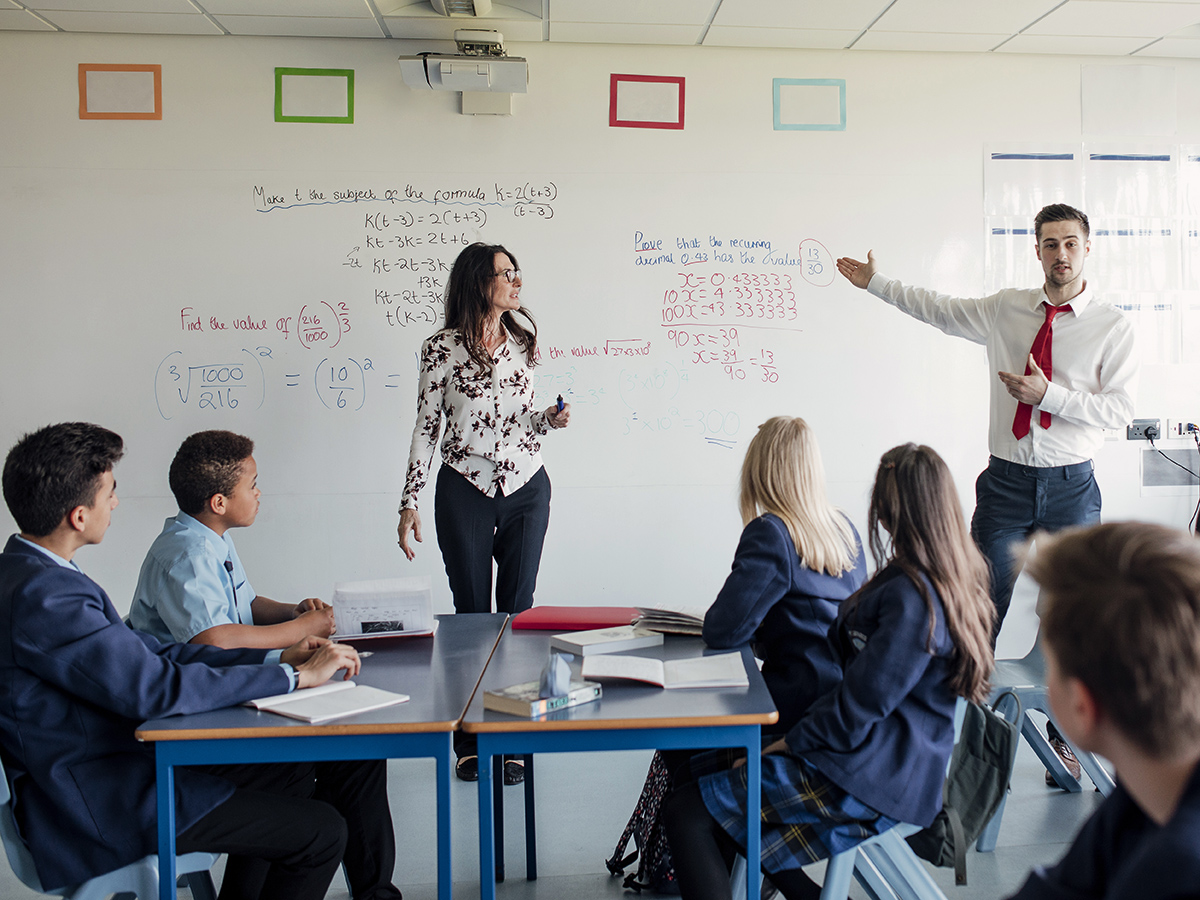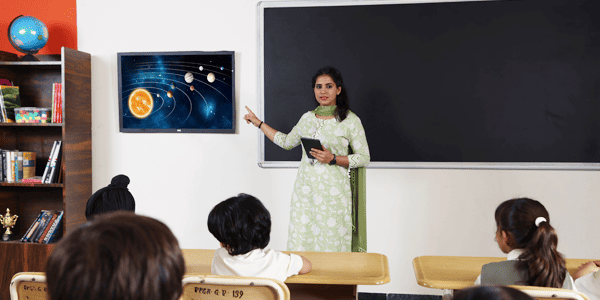Improve Your Child’s Performance with Primary Science Tuition Singapore
Improve Your Child’s Performance with Primary Science Tuition Singapore
Blog Article
Discover the Vital Benefits of Recognizing Primary Science for Young Students
The value of key science education and learning for young students extends far beyond simple expertise procurement; it acts as an essential column in creating essential abilities such as crucial reasoning, analytical, and creativity. Engaging with scientific ideas through inquiry-based and interactive tasks not only cultivates curiosity but also lays the groundwork for durable, positive learners. As we check out these advantages better, it becomes clear that the implications for future academic and individual development are extensive. What specific strategies can instructors use to make best use of these advantages?
Enhancing Critical Thinking Abilities
Promoting vital believing abilities in young learners is essential for their cognitive growth and future scholastic success. Essential reasoning enables kids to analyze details, review evidence, and make educated choices, which are crucial skills in today's information-rich culture. By engaging in clinical inquiry, young students can improve these skills as they check out concepts with trial and error, monitoring, and thinking.
In main scientific research education and learning, educators can help with critical reasoning by encouraging trainees to ask concerns, develop theories, and conduct experiments. This hands-on strategy allows children to practice analytical and establish rational thinking abilities. As an example, when students examine the residential or commercial properties of materials or the principles of movement, they discover to examine their searchings for seriously and draw final thoughts based upon evidence.
Furthermore, discussions and collective tasks can advertise critical reasoning by giving possibilities for students to articulate their thoughts, obstacle presumptions, and think about diverse perspectives. By developing an encouraging atmosphere that values query and reflection, educators can support vital believing skills that encourage young students to become independent thinkers and long-lasting students. Eventually, improving these abilities lays a durable structure for their future academic endeavors and individual growth.
Cultivating Interest and Exploration

Key scientific research education gives a structured setting where young learners can check out various phenomena via hands-on experiments and observations. By permitting them to interact with products and engage in inquiry-based knowing, teachers develop opportunities for kids to create theories, evaluate their concepts, and reason. Such experiences nurture a feeling of marvel and enjoyment concerning scientific research.

Building Confidence in Issue Resolving
Building confidence in analytic is a crucial component of primary scientific research education and learning that equips young students to approach challenges with resilience and creativity - primary science tuition Singapore. They create crucial skills in crucial thinking and evaluation when kids are encouraged to involve with scientific principles with hands-on activities and inquiry-based discovering. This procedure not only boosts their understanding of scientific concepts however also fosters a feeling of possession over their discovering
To build self-confidence, teachers should produce a supportive setting where mistakes are deemed chances for development instead of failings. This motivates pupils to take dangers and discover various options to problems. By supplying scaffolding and advice, teachers can aid students navigate complex jobs, progressively boosting their self-reliance in analytical circumstances.
Moreover, collective discovering experiences, such as group jobs or experiments, can additionally boost pupils' self-confidence as they learn to verbalize their thoughts and listen to others' perspectives. anonymous These communications support social abilities and strengthen the concept that analytical is commonly a collective undertaking. Inevitably, growing self-confidence in problem-solving prepares young students for future academic obstacles and outfits them with the tools necessary for long-lasting learning.
Encouraging Creative Thinking and Technology
In the realm of primary scientific research education and learning, motivating imagination and development is essential for growing a dynamic learning atmosphere. By fostering a society where young learners can discover ideas and experiment freely, instructors assist pupils establish essential assuming skills and an interest for discovery. Creative thinking in science urges children to ask inquiries, develop hypotheses, and participate in hands-on tasks that promote their creative imagination.
Integrating flexible projects and inquiry-based discovering right into the educational program enables pupils to express their one-of-a-kind viewpoints and services. When charged with fixing a problem associated to their environment, students can conceptualize multiple approaches, leading to inventive results that display their originality. This not just deepens their understanding of scientific ideas yet additionally infuses a sense of ownership over their learning process.
Additionally, imaginative scientific research education and learning nurtures partnership among peers, as trainees often share ideas and build on one an additional's insights - primary science tuition Singapore. This joint spirit promotes not just development however also essential social abilities. Therefore, by prioritizing imagination and advancement in main scientific research education, we encourage young students to believe critically, welcome obstacles, and imagine opportunities, laying a solid foundation for lifelong learning and expedition
Planning For Future Understanding Obstacles
Young learners' ability to browse future discovering challenges rests on a solid structure in main science education and learning. This foundational understanding equips pupils with essential thinking abilities and a methodical approach to analytic, necessary for tackling intricate problems in an ever-evolving world. Key scientific research fosters inquiry-based understanding, motivating pupils to ask concerns, explore hypotheses, and involve in hands-on experiments.
As they establish these abilities, learners come to be proficient at analyzing data, acknowledging patterns, and drawing notified verdicts. Such competencies are essential not only in clinical areas however likewise in engineering, technology, and math (STEM), where interdisciplinary knowledge is significantly important.
Moreover, main science education and learning grows a feeling of curiosity and durability in young students, allowing them to view difficulties as chances for development. As they run into and overcome obstacles in look at here their scientific explorations, they develop confidence in their capability to adjust and introduce.
Eventually, a solid foundation in my website main scientific research not only prepares young students for scholastic quests but additionally equips them with the tools necessary for lifelong learning and flexibility in a quickly altering global landscape. By spending in main scientific research education, we are buying the future capacity of our students.
Final Thought
Understanding main scientific research is vital for young students, as it promotes crucial reasoning, curiosity, and creative thinking. Ultimately, the advantages of primary science education and learning prepare kids for future academic searches and impart lifelong learning routines essential for prospering in an ever-evolving globe.
The importance of key scientific research education for young students extends much beyond simple knowledge acquisition; it offers as a basic pillar in creating vital abilities such as critical thinking, analytical, and creative thinking. By creating a supportive atmosphere that values questions and representation, instructors can nurture vital believing abilities that encourage young students to end up being long-lasting students and independent thinkers. Hence, by prioritizing creativity and technology in key science education, we equip young students to believe seriously, welcome obstacles, and envision possibilities, laying a solid structure for long-lasting understanding and expedition.
Young learners' capability to browse future discovering difficulties pivots on a solid foundation in primary science education and learning.Understanding primary scientific research is crucial for young students, as it cultivates important reasoning, interest, and creativity.
Report this page